Episodes
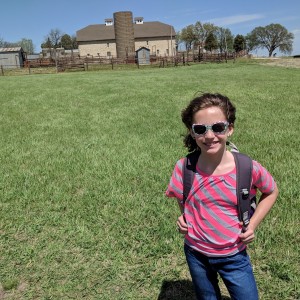
Tuesday Feb 28, 2023
Tuesday Feb 28, 2023
This is my big Episode 50. That’s, like, a milestone, right? And it’s with a nice guy I know, so I like it even more.
I worked with Greg for years at a veterinary publishing and event company. Now, he’s working on revving up his business in commercial photography, which I think is interesting. What is commercial photography? In Greg's case, he specializes in tabletop product pics, headshots, and pet portraits. You know, not artsy-fartsy photographs (although he takes those, too, and they’re real purty), but work for businesses. The kind of shots that leave you smiling at an executive’s facial expression, or curious about a new beer, or intrigued by packaging of just about anything.
In this interview, he drops some tidbits about two basic mistakes people make taking amateur pictures at the end, so stay tuned …
Audio note: Greg’s audio is a little crackly sometimes. Hey—nice guys and gals agree to record interviews with me remotely, and I don’t harangue them about their setup, alright? ALRIGHT? Love you all! :)
To Feed Further Curiosity:
You can find Greg Kindred Photography here. He takes good pictures of anything, he stays calm and collected, and he’s creative.
Here’s a pic of me and Greg with ex-co-workers with that company. I found it in the set of “Events" pics Greg has on the above website. He’s the tall guy in the shades far left. I’m the tall guy in the middle back with the mostly shaved head. We both have foam fingers because we rule. He looks about the same years later. I’ve chonked
Greg is planning to crowd-fund publishing costs for a book of Kansas City breweries. He’s already got interest from local retailers to sell it. I’ve seen the proof-of-concept book, and it’s awesome. I don’t care about beers or Kansas City that much (I’m from Cali, so sue me), but the book is really pretty and interesting. Hurry up, Greg.
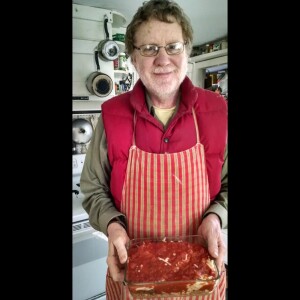
Tuesday Feb 21, 2023
Tuesday Feb 21, 2023
I stumbled onto the writing of David Grayson as I reflected on my (sometimes) daily reading of The University Library. Grayson's way of seeing the good in people and letting curiosity turn his feelings of urban oppression into natural wonder were inspiring. Open, curious conversations with people are kind of what this podcast is about.
So, I went on the hunt for someone to talk to about the guy whose method of talking to people was so inspiring.
And I found Nick Grabbe (grab-AY). Nick worked for decades as a journalist in Amherst, Massachusetts. Born in Washington, D.C., and custom-built to work as a big-city journalist, Grabbe turned to what he calls “simple living” in the small Massachusetts town he moved to. That’s what Grayson himself extolled for many years in his columns written for newspapers in the early 20th century.
But, it turns out … there was no David Grayson. It was a pseudonym. Who was this Grayson guy? Grabbe will explain. And along the way he’ll tell us about journalism and the appeal of a less hectic way of life—both of which held Grayson’s attention, too, as you’ll discover ...
More to see:
Want to learn more about a simple-living, small-town-focused journalist’s career? Buy Nick's self-published Print and Privilege: Newspaper Writer Tells His Story (2021, Off the Common Books).
Do you want to try out a David Grayson book, or an essay or character study or two?
Gutenberg’s offerings (website)
Internet Archive’s offerings; just ignore the ones that look newer (website)
Read more from David and his wife on the simple-living blog Adventures in the Good Life.
If we have titillated your curiosity, you can learn more from an online exhibit about Grayson and an event Nick spoke at. The website features photos and letters like the ones Grabbe references in this podcast.
Read Nick’s entire essay/speech/presentation on Grayson he delivered at the event referenced above.
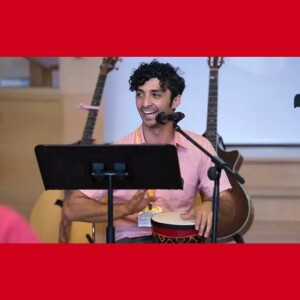
Tuesday Feb 14, 2023
Tuesday Feb 14, 2023
I met Noah when he came to a big synagogue in the Kansas City Metro and spent a weekend with us there. I was teaching kids songs every Sunday, so he trooped around with me and my brilliant guitar-playing assistant and interacted with every age group with us during the day. He says in this podcast that he loves getting down with the kids on the ground and interacting with them in the moment, and that is exactly what I remember most about his presence: He was right there with you.
I still play a few of his songs, old and new, at my current Sunday School gig, and I always loved his energy and … really, his being he brings during music. And that’s funny, because he plays with my opening question. I tell guests, “You’ll start with, ‘I’m BLAH, and I do BLAH.’” And, well, he takes me literally. But then he gets on a philosophizing train in the moment about how “I am” can be so powerful—what we tell people about ourselves, how we feel about ourselves, what we really are. And he comes to a much wider statement when he gets to the end of it here, and I dug it.
Then we go on to talk about how Noah got into music, got into Jewish music, got into and out of rabbinic school, and got into his current place. He still makes Jewish music. He still visits and works with synagogues. But he’s dipped back into his old love of theater recently, and he took the COVID break from shul-touring to make a new, different kind of music, which he’ll talk about here.
Anyway, I always wanted to find out how Noah got started and why he does what he does in his way. And he very kindly told me. And now you.
If you like his vibe, you'll also like him here:
> M.O.V.E., a BeMajor Production by Noah Aronson, on Apple Music, Spotify, or in his album release concert on YouTube
> The BeMajor Podcast, with links here
> BeMajor, which offers Noah’s guidance on music in wellbeing, music theory, songwriting, and more
He doesn’t market these in this podcast, but I wanted you to know, if you like him, there’s more to like.
P.S. This is two podcasts in a row where something was a little wonky about the audio. In this case, Noah sounds fabulous, and I sound scratchy/staticky. Thankfully, I shut my piehole most of the podcast.
P.P.S. My old boss in her new career as kick-ass executive coach is thinking about healthy feedback right now, and so my last question was about feedback. His answers were great. Thanks for the question, Marnette.
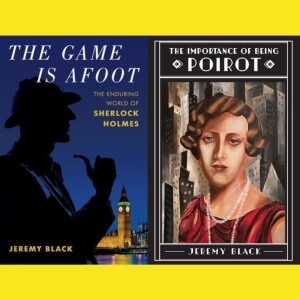
Tuesday Jan 24, 2023
Tuesday Jan 24, 2023
Recently retired history professor Jeremy Black was very gracious in allowing me to interview a while back about something I was curious about: war. Black has written many, many books, and a darn big pile of them specifically about military conflicts. His historic perspective—looking at how many common narratives about why wars start and how they’re won are often wrong—was amazingly refreshing, but … we’re not here to talk war.
We’re here to talk morality. Religion. And detective fiction.
Black has just published two new books on Sherlock Holmes (The Game Is Afoot: The Enduring World of Sherlock Holmes; Rowman & Littlefield, 2022) and Agatha Christie (The Importance of Being Poirot; St. Augustine's Press, 2022). Any fan of either, or detective fiction in general, surely will delight in the perspective of a history-trained literary appreciator (is that a word?) of the books. I’ve read a little Arthur Conan Doyle and none at all of Christie, but talking to him for a little while inspired me to do more of both and to take seriously the visions of society, morality and theology inside the works and, for sure, inside the writers’ own intentions and lives.
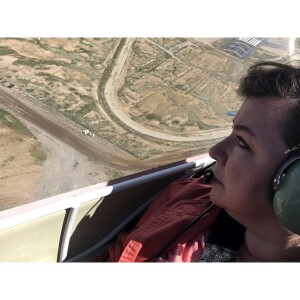
Tuesday Jan 10, 2023
Tuesday Jan 10, 2023
Two things everywhere around us: Religion. Space.
But most people don’t bring them together.
Scientists unhappy with religion shake their head at our species’ small-minded tribal violence that bubbles up in religious conflict or old-fashioned “sky daddy” thinking. Religionists unhappy with science shake their head at scientism’s obsessive materialism and lack of answers and responses to our very human needs to understand, to be comforted, to be awed.
Now that the two strawmen/women are out of the way, most of us can acknowledge religion doesn’t end at the atmosphere, and space is as even more of a wild testimony to the universe’s wonder and the necessity of the “why?” questions that, sometimes, are best discussed and studied in the social sciences.
Blah blah blah, from me. Let’s talk Deana Weibel, PhD (DEE-nuh WHY-bull). She’s a professor in both the Anthropology and Religious Studies departments at Grand Valley State University in Allendale, Michigan. She studies sacred spaces, including sacred spaces and people’s relationships to those places. She came up to me at Spaceport America as a visiting anthropologist observing and asking questions of folks like me there, who were waiting to see if their friends’ and family members’ remains would go up on a rocket. They didn’t. She wanted to ask me a few questions about Judaism and space (I didn’t have good answers). But I snuck her my card to interview her for my podcast, because when you’re confronted with an anthropologist who studies religion and space, you want to know more.
Cool claim to fame: Dr. Weibel wrote a paper about what she calls the ultraview effect. The Overview Effect is one name for what astronauts say they experience when they look out at Earth from above and get a new, powerful perspective on humanity and our small planet. Weibel heard another astronaut talk about an experience of fear and awe that came with looking out at the stars in the other direction, causing “a transformative sense of incomprehension and a feeling or shrinking or self-diminution.” Anyway, the Brit-rock band Kasabian recorded a song called “T.U.E. (The Ultraview Effect),” which appears on their 2022 album. And the lyrics do talk about perspective, so it sounds like song and idea are intertwined. We get into the ultraview effect, but not the song, in this podcast.
So, settle back and let’s study the stars … or strap in, we’re going for a rocket ride … whatever metaphor you like … where does religious yearning meet with space exploration … ?
P.S. There’s a tinny vibration in some of the audio here. Apologies. Don’t hate me. I can’t afford this genius for every podcast, alright?
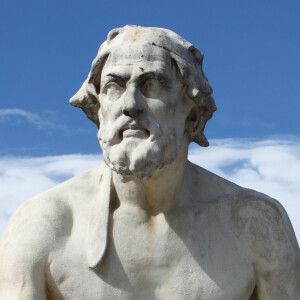
Tuesday Dec 13, 2022
Tuesday Dec 13, 2022
Last month, we heard from academic Joel Schlosser on Herodotus, inspired by my own blog on some excerpts.
Now, a nice Redditor, Georgios from Greece who's read all of Thucydides agreed to discuss the ancient historian with me. We wander close to Thucydides and far afield, but most of all his enthusiasm, enjoyment and sense of humor about the principal characters and events from these old battles and political intrigues made our chat sparkle.
Interested in slowly reading ancient works with Georgios? Check out his Aristotle Study Group here.
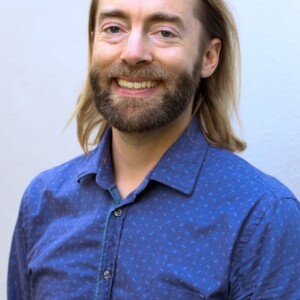
Thursday Nov 17, 2022
Thursday Nov 17, 2022
I have started reading a new set of old excerpted classics, this one gathering writers’ bits and baubles into generally geographic volumes: Greece, Rome, the British Isles, etc. I also write about them. (I write about another set here.)
The first selection in the first volume comes from the ancient Greek historian Herodotus. (You can read my thoughts here.)
Much sharper than my own thoughts, however, are the thoughts of political theorist and Bryn Mawr professor Joel Schlosser, writer of Herodotus in the Anthropocene (The University of Chicago Press, 2020). Schlosser explores exactly what I felt reading Herodotus and what I hope anyone exploring the ancients today wants: something relevant to them now.
In our chat, Joel answers burning questions I had about Herodotus, his own personal experience discovering the ancient historian, and, most important, what we can learn right now about how we think about the world and our place in it.
Herodotus tried to figure out how the ancient Egyptians dug canals, built great buildings, and won and lost wars. And, most of all, why his Greek world was the way it was after the great battles between Persians and Greeks. Be just as curious as Herodotus! Listen ...
P.S. If you’re taken by Schlosser’s observations, buy his book and enjoy, also, a few of his blog posts from the past few years as he worked on it:
“While I imagined myself in conversation with Herodotus, wondering what he’d make of the anarchists’ message of radical equality – was it an update of Herodotean isêgoria, the equal voice he viewed as central to Athens’ flourishing? – I gazed upon the Acropolis with humbled amazement.” (link)
“Herodotus writes for an audience. He wants us to lose ourselves in the story and then to its comedy.” (link)
“Herodotus talks of the phoenix, which immolates itself only to be reborn from its ashes, as well as crocodiles and the special burials Egyptians give to their victims.” (link)
“Herodotus exemplified a form of inquiry that was broad-minded and imaginative in ways Thucydides simply wasn’t.” (link)

Tuesday Aug 30, 2022
Tuesday Aug 30, 2022
Kit Smith is one of the most confident, stable and exuberant kindergarten teachers I've had the pleasure to work with. (We cross paths in a local synagogue's Sunday School).
She's now eyeing a well-deserved retirement from decades of educational work at a private school and her regular Sunday School gig with me.
I absolutely needed to talk to her about how she became a teacher, what teaching means to her, what her teaching philosophy is, what is most exhilarating about working with small children, and what has been the toughest part (hint: not the kids).
If you're interested in education and little kids, this is a must-listen.
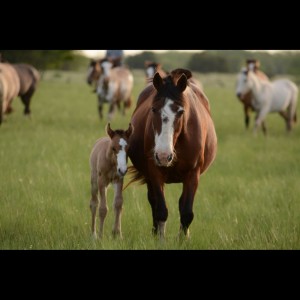
Tuesday Aug 16, 2022
Tuesday Aug 16, 2022
She’s an awesome veterinary practice manager and management consultant in her day job, but Tracy Sheffield moonlights doing local theater and getting called in for small parts that are just perfect for a horse-smart extra.
Find out about her latest gig in an upcoming episode of Walker (find out where to watch it here), how she got started, years ago, watching Animal House get made at her mom’s workplace, and, last but not least, how she helps race horses who can’t race anymore (more about the Roses to Ribbons Old Fashioned Horse Fair).
Photo by Jeremy Bishop on Unsplash
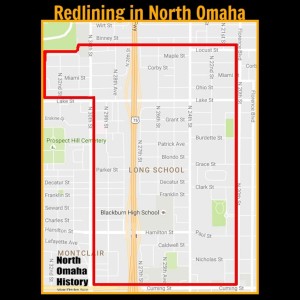
Tuesday Aug 02, 2022
Tuesday Aug 02, 2022
University of Omaha at Omaha’s Heike Langdon explains what goes into an Urban Studies concentration, what she likes best about nonprofit work, and why she was attracted to a field that touches on serious societal problems today and historically.
She’s focused, especially, on redlining in a few large American cities as her degree’s final project. What’s red-lining? Glad you asked. And she’s studying this while she’s working at this cool place on campus that brings together multiple nonprofits under one roof.
Let’s get learning …
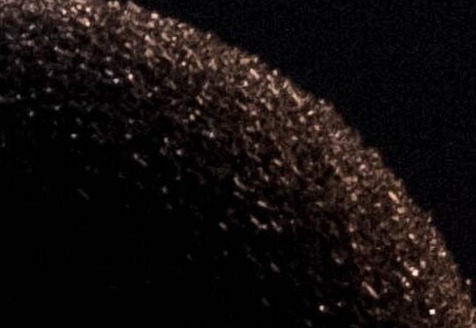
What People Do: Interviews of Discovery
When COVID happened, I started talking to friends, family and acquaintances about something they did. The topics, personalities, and conversational directions go many different ways, but the important thing remains the same: We are all worth the time it takes to sit down and talk a while to each other. What would you learn if you slowed down, asked more questions, and delved into something interesting to ... someone else?



